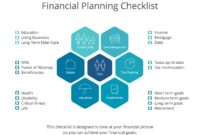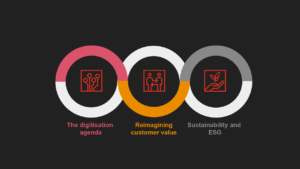Trump’s Tariffs Could Make Your Car Insurance More Expensive is a thought-provoking topic that dives into the unexpected effects of trade policies on everyday expenses. As tariffs on imported goods increase, the ripple effects can lead to higher costs for car manufacturers, which, in turn, may translate into more expensive car insurance premiums for consumers. Understanding this connection is vital for anyone looking to navigate the financial implications of political decisions.

In this discussion, we will explore how tariffs influence the automotive industry, the subsequent impact on insurance costs, and why consumers should be aware of these economic shifts. We aim to shed light on the broader implications that such financial policies can have on personal finances and consumer choices.
In today’s digital age, the significance of understanding and employing effective communication strategies cannot be overstated. Whether you’re a professional in a corporate setting, a student in academia, or an entrepreneur navigating the complexities of the marketplace, your ability to convey information clearly and persuasively is crucial. As we delve deeper into this subject, we will explore various aspects of communication, including its definitions, importance, types, and effective strategies you can employ to enhance your communication skills.To start, let’s define communication.
At its core, communication is the process of exchanging information between individuals through a common system of symbols, signs, or behavior. This exchange can be verbal, non-verbal, written, or visual. The effectiveness of this exchange largely depends on the clarity of the message being sent and the medium used to convey it.Why is communication so important? Firstly, it serves as the foundation for all human interactions.
Effective communication fosters better relationships, enables collaboration, and facilitates the sharing of ideas. In a workplace setting, strong communication skills can lead to improved team dynamics and increased productivity. For students, being able to articulate thoughts and engage in discussions can enhance learning and academic performance. For entrepreneurs, the ability to communicate effectively can be the difference between securing a deal and losing a potential client.Now, let’s differentiate between the types of communication.
Broadly, communication can be classified into four main categories: verbal, non-verbal, written, and visual communication.
1. Verbal Communication
This type includes spoken interactions, whether in person or over the phone. Verbal communication is characterized by tone, pitch, and pace, all of which can significantly influence how a message is received. The key to effective verbal communication is clarity and the ability to listen actively.
2. Non-Verbal Communication
This encompasses body language, facial expressions, gestures, and eye contact. Non-verbal cues often convey more about a person’s feelings and intentions than words alone. Being aware of your own non-verbal signals and those of others can enhance your communication effectiveness.
3. Written Communication
This includes emails, reports, memos, and any other form of text-based communication. Writing clearly and concisely is essential in conveying your message effectively. It’s important to tailor your writing style to your audience, ensuring that the tone and complexity match their expectations and understanding.
4. Visual Communication
This type involves the use of visual aids to convey information, such as charts, graphs, infographics, and videos. Visuals can enhance understanding and retention of information, making them powerful tools in presentations and educational materials.Having recognized the types of communication, let’s explore some effective strategies that can help you improve your communication skills.
1. Know Your Audience
Understanding who you are communicating with is fundamental. Tailoring your message to fit your audience’s needs, interests, and level of understanding can significantly enhance the effectiveness of your communication. This involves considering their background, preferences, and knowledge of the subject matter.
2. Be Clear and Concise
Avoid jargon and overly complex language. Strive for clarity in your messages, ensuring that your key points are easy to grasp. A concise message is often more impactful than a lengthy one filled with unnecessary details.
3. Practice Active Listening
Effective communication is a two-way street. Engaging in active listening—fully concentrating on what is being said rather than just waiting for your turn to speak—can greatly improve your interpersonal skills. It demonstrates respect and fosters a more meaningful dialogue.
4. Use Positive Body Language
Your non-verbal cues can reinforce or contradict your verbal messages. Maintain eye contact, use appropriate gestures, and be aware of your facial expressions. Positive body language can help convey confidence and openness, encouraging others to engage with you.
5. Seek Feedback
Regularly soliciting feedback on your communication style can provide valuable insights into areas for improvement. Whether through informal conversations or structured evaluations, understanding how others perceive your communication can help you make necessary adjustments.
6. Embrace Technology
In an increasingly digital world, being proficient in various communication tools is essential. Familiarize yourself with platforms for virtual meetings, collaborative software, and social media, as they can enhance your ability to connect and communicate effectively in a remote environment.
7. Practice Empathy
Empathy plays a crucial role in effective communication. Being able to put yourself in others’ shoes can help you understand their perspectives and respond more appropriately. This not only improves your communication but also strengthens relationships.
8. Continuously Improve
Communication is a skill that can always be refined. Engage in training sessions, workshops, or online courses to further develop your abilities. Reading books and articles on communication can also provide new insights and techniques.In conclusion, mastering the art of communication is vital in today’s interconnected world. Whether for professional or personal purposes, the ability to convey your thoughts effectively can open doors to new opportunities and foster deeper relationships.
By understanding the different types of communication, employing effective strategies, and continuously seeking improvement, you can enhance your communication skills and become a more effective communicator. Remember, great communication starts with the willingness to connect, listen, and engage authentically with others. Embrace this skill and witness the positive impact it can have on your life.




